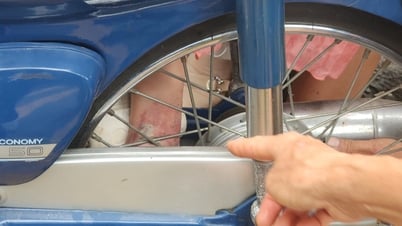The police have the right to check a citizen's phone when there is reason to believe that the phone is evidence or related to a case.
Many people often wonder whether the police can check their phones. We would like to answer your questions.
Clause 1 and Clause 2, Article 38 of the 2015 Civil Code clearly state:
- Private life, personal secrets, family secrets are inviolable and protected by law.
- The collection, storage, use and disclosure of information related to private life and personal secrets must be agreed by that person. The collection, storage, use and disclosure of information related to family secrets must be agreed by family members, unless otherwise provided by law.
In addition, Article 12 of the 2015 Criminal Procedure Code also stipulates:
No one may illegally infringe upon the residence, privacy, personal secrets, family secrets, safety and confidentiality of correspondence, telephone, telegram and other forms of private information exchange of individuals.
Accordingly, individuals are protected by law in their privacy, and their correspondence, telephone calls, and telegrams are secure. Therefore, the collection, use, and disclosure of information related to individuals must be agreed upon by that individual.
However, in the following cases, competent persons or agencies may search, confiscate, or inspect citizens' phones.
The first case is when the phone contains evidence of an administrative violation. Pursuant to Clause 5, Article 119 of the Law on Handling of Administrative Violations 2012, competent persons have the right to search objects, including mobile phones, in cases where it is necessary to promptly prevent administrative violations or to ensure the handling of administrative violations.
At the same time, according to Clause 1, Article 128 of the Law on Handling of Administrative Violations 2012, the search of objects can only be conducted when there is reason to believe that the object contains evidence of an administrative violation.
The second case is when the phone is evidence in a criminal case. According to Article 87 and Article 99 of the 2015 Criminal Procedure Code, a mobile phone is considered a source of evidence in the form of electronic data because the phone is a means of storing writing, numbers, images, sounds or similar forms created, stored, transmitted or received by electronic means.
- Electronic data is one of seven sources of valuable evidence proving crimes and other violations of the law.
- The police have the right to seize electronic data (mobile phones) according to Articles 88, 89, 90, 107, 196 of the 2015 Criminal Procedure Code to detect and prevent criminal acts; Collect and consolidate documents and evidence proving crimes and criminals; Collect documents related to the settlement of cases or ensuring the execution of judgments and penalties.
According to Article 196 of the 2015 Criminal Procedure Code, the process of seizing electronic data (mobile phones) may include seizing accompanying peripheral devices and related documents, so requesting the owner of the electronic device to provide the password for electronic data is completely legal in order to exploit, check, verify, and collect information and data related to the case being resolved.
Thus, from the above regulations, the police have the right to seize and inspect a citizen's phone when there is reason to believe that this phone is evidence or is directly related to a case, an administrative violation, or is related or is a means of committing a crime in a criminal case.
BAO LINH (vtc.vn)
Source link


![[Photo] Close-up of modernized Thu Thiem, connecting new life with District 1](https://vphoto.vietnam.vn/thumb/1200x675/vietnam/resource/IMAGE/2025/6/24/d360fb27c6924b0087bf4f288c24b2f2)

![[Photo] The 9th Party Congress of the National Political Publishing House Truth](https://vphoto.vietnam.vn/thumb/1200x675/vietnam/resource/IMAGE/2025/6/24/ade0561f18954dd1a6a491bdadfa84f1)


![[Photo] General Secretary To Lam meets with the Group of Young National Assembly Deputies](https://vphoto.vietnam.vn/thumb/1200x675/vietnam/resource/IMAGE/2025/6/24/618b5c3b8c92431686f2217f61dbf4f6)




































































































Comment (0)